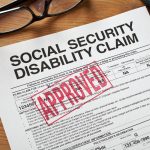Depression is a normal mental health illness that affects a lot of people globally. It interferes with our everyday activities, you lose interest in the things that you once enjoyed. Fortunately, it is treatable. It decreases one’s ability to work both at home and at work. It also affects students’ academic performance in school.
According to the World Health Organization, estimates that 350 million suffer from depression. It is the most common cause of disability and common illnesses. Depression is more common in women than in men. Life events such as job loss or bereavement cause a change in mood commonly attributed to depression.
It is normal to feel low and demotivated from day to day. But when such symptoms prolong, it is a sure sign of depression. Understanding the type, causes and treatment options, can present you with a seamless recovery journey.
Symptoms of depression
- Feelings of helplessness or hopelessness: you feel like the situation will never improve and there is no hope for your future
- Self-hate: you harshly criticize yourself for mistakes made. You walk around with guilt and shame
- Concentration problems: you have difficulty in remembering and focusing on a task. Making of clear decisions also becomes hard.
- Reckless behavior: you often engage in life-threatening or reckless behavior such as excessive drinking of alcohol, over speeding, gambling, and unprotected sex
- Loss of energy: you feel exhausted, sluggish and your whole body seems heavy. You lack the guts to do simple tasks at hand.
- Unexplained aches and pains: there is an increase in back pain, headache, muscle aches and your whole body seem to ache all along.
- Loss of interest: you rarely care about your hobbies, activities you once enjoyed and sex. There is a tendency to lose joy and pleasure.
- Thoughts of death and suicide: constantly thinking about taking your life or harming those close to you.
- Trouble sleeping: you either sleep too much or sleep for fewer hours than normal.
- Slowed movement and response: it takes you time to move from one place to another. Your response to stimuli usually takes time.
- Changes in eating habits: weight gain or weight loss can be noted. This is because of unhealthy eating habits.
- Irritability: easily angered by stimuli.
- Persistent sadness and anxiety.
Not all people experience all the above symptoms. Most experience just a handful of them. For you to be diagnosed with it, the symptoms ought to have been present for more than two weeks. Medical complications such as brain tumor and thyroid problems can mimic the above symptoms. It is therefore essential to rule out health complications.
Types of depression
Bipolar or unipolar
Bipolar is a disorder characterized by both manic and depressive episodes. You may be depressed at one point but later in the day, hyperactivity gets the better of you. If only one episode is predominant, it is known as unipolar.
Unipolar can involve anxiety to a great extent. Most bipolar patients suffer from the illness.
Persistent depressive disorder
It is a depressed mood that lasts for more than two years. Although major depressive episodes are predominant, you can experience less severe depression episodes in between. It is usually accompanied by psychosis. This involves hallucinations and delusions.
Postpartum depression
Affects women after giving birth. It is severe as compared to baby blues. Baby blues last for two weeks after giving birth. Women with postpartum depression usually experience major depression during pregnancy and after birth. Due to the constant tiredness, emptiness, and sorrow, it becomes hard for the mother to take good care of her baby.
Psychotic depression
Occurs when a person is severely depressed and has delusions (false beliefs) and hallucinations (seeing or hearing things that others cannot see or hear). The person experiences delusions of poverty, illness or guilt.
Seasonal affective disorder
Is more prevalent during winter seasons when there is no sunlight. It usually improves as winter breaks. Signs are withdrawal, excessive weight gain, and sleepiness. It occurs once every year.
Causes of depression
The cause cannot be singled out, but several factors lead to depression in an individual. They include:
Stressful life events
Stressful circumstances in life that render you unable to cope. During such periods, there is a high production of the hormone cortisol. It affects the production and effectiveness of the hormone serotonin and ultimately leads to depression.
Grief or loss
When you lose a loved one, you may experience episodes of symptoms closely related to the illness. You might lack appetite, feel hopeless and have trouble sleeping.
Poor nutrition
A poor diet may lack vital minerals and vitamins that may lead to the illness. Lack of omega-3 fatty acids in the diet brings about depression. Foods high in sugar content also facilitate depression.
Physical health problems
The body and the mind are closely related. Physical health problems may trigger a change in mental health. The illness may also trigger depression due to the chronic pain experienced. Chronic illnesses such as liver disease have depression as a symptom.
Drugs
Alcohol and drugs lead to the mental disorder. But some prescription medicine also facilitates depression. Some of these drugs are statins, anticonvulsants, stimulants, and beta-blockers. Always check the side effects of a drug before purchase.
Treatment options
It is treatable. There are several ways to go about it. They include:
Psychotherapy
Psychotherapy treatment is the most common type of treatment for the illness. It is used to treat mild episodes, and is used alongside other treatment in case of severe depression. Types of psychotherapy include problem-solving treatment, interpersonal psychotherapy, and cognitive-behavioral therapy.
Antidepressant medication
There are prescribed for moderate to severe depression and with great caution. They are not recommended for young kids. The available categories of drugs are tricyclic antidepressants, atypical antidepressants, monoamine oxidase inhibitors, selective serotonin reuptake inhibitors and norepinephrine reuptake.
Continue with the drugs even after improvement of symptoms. This is in a bid to prevent relapse.
Exercises and other therapies
Aerobic and cardiovascular exercises may help end mild depression. They raise endorphin levels and stimulate norepinephrine that affects moods.








